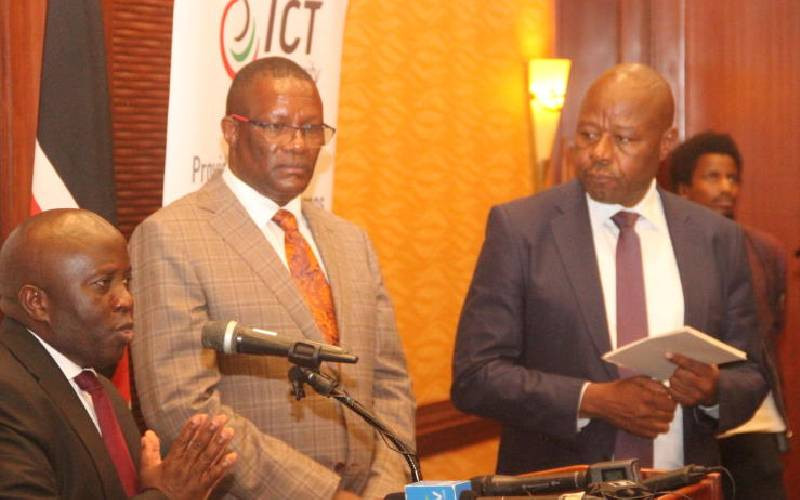×
The Standard e-Paper
Join Thousands Daily

The government has unveiled a plan to spend Sh79.8 billion on a digital acceleration programme aimed at improving Kenya's digital infrastructure and digitising public services at both the national and county levels.
ICT and Digital Economy Cabinet Secretary Eliud Owalo said the funds that have been sourced from the World Bank will go towards boosting national broadband access and enhancing service delivery.